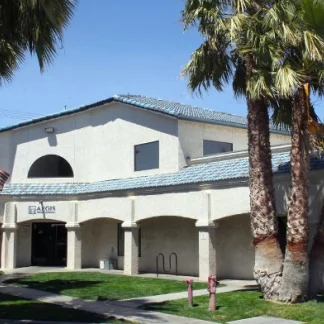Revival Recovery Services
Revival Recovery Services is a private rehab located in Apple Valley, California...
Aegis Treatment Centers, located in Hesperia, California, is an alcohol and drug rehab center that offers addiction treatment to men and women seeking recovery. They specialize in the treatment of opioid use disorder.
Aegis Treatment Centers uses evidence-based treatment interventions. Their programming focuses on medication-assisted treatment.
The medication-assisted treatment program uses FDA-approved medications in combination with mental health counseling and relapse-prevention programming to help individuals mentally, emotionally, and physically withdraw from addictive substances.
Aegis Treatment Centers accepts most insurance plans, including Amerigroup, Aetna, Magellan, United Healthcare, Blue Cross Blue Shield, ComPsych, Anthem, and Cigna. Out of network benefits may vary, so it’s important to verify coverage with your provider.
Contact us for more information: (760) 956-2462

Connect with Aegis Treatment Centers by calling their admissions team directly.
(760) 956-2462 Website Get DirectionsThe Substance Abuse and Mental Health Services Administration (SAMHSA) is a branch of the U.S. Department of Health and Human Services. Established in 1992 by congress, SAMHSA's mission is to reduce the impact of substance abuse and mental illness on American's communities.
SAMHSA Listed: Yes
Cognitive Behavioral Therapy (CBT) is a therapy modality that focuses on the relationship between one's thoughts, feelings, and behaviors. It is used to establish and allow for healthy responses to thoughts and feelings (instead of unhealthy responses, like using drugs or alcohol). CBT has been proven effective for recovering addicts of all kinds, and is used to strengthen a patient's own self-awareness and ability to self-regulate. CBT allows individuals to monitor their own emotional state, become more adept at communicating with others, and manage stress without needing to engage in substance abuse.
Motivational Interviewing (MI) is a clinical approach to helping people with substance abuse issues and other conditions shift behavior in positive ways. It is more goal-oriented than traditional psychotherapy, as MI counselors directly attempt to get clients to consider making behavioral change (rather than wait for them to come to conclusions themselves). Its primary purpose is to resolve ambivalence and help clients become able to make healthy choices freely.
Trauma therapy addresses traumatic incidents from a client's past that are likely affecting their present-day experience. Trauma is often one of the primary triggers and potential causes of addiction, and can stem from child sexual abuse, domestic violence, having a parent with a mental illness, losing one or both parents at a young age, teenage or adult sexual assault, or any number of other factors. The purpose of trauma therapy is to allow a patient to process trauma and move through and past it, with the help of trained and compassionate mental health professionals.
Motivational Interviewing (MI) is a clinical approach to helping people with substance abuse issues and other conditions shift behavior in positive ways. It is more goal-oriented than traditional psychotherapy, as MI counselors directly attempt to get clients to consider making behavioral change (rather than wait for them to come to conclusions themselves). Its primary purpose is to resolve ambivalence and help clients become able to make healthy choices freely.
Trauma therapy addresses traumatic incidents from a client's past that are likely affecting their present-day experience. Trauma is often one of the primary triggers and potential causes of addiction, and can stem from child sexual abuse, domestic violence, having a parent with a mental illness, losing one or both parents at a young age, teenage or adult sexual assault, or any number of other factors. The purpose of trauma therapy is to allow a patient to process trauma and move through and past it, with the help of trained and compassionate mental health professionals.
Trauma therapy addresses traumatic incidents from a client's past that are likely affecting their present-day experience. Trauma is often one of the primary triggers and potential causes of addiction, and can stem from child sexual abuse, domestic violence, having a parent with a mental illness, losing one or both parents at a young age, teenage or adult sexual assault, or any number of other factors. The purpose of trauma therapy is to allow a patient to process trauma and move through and past it, with the help of trained and compassionate mental health professionals.
Revival Recovery Services is a private rehab located in Apple Valley, California...
MHS - Helping Hands offers families the help and support they need to stay toget...
VA Loma Linda Healthcare System - Victorville Community Based Outpatient Clinic ...
Located in Victorville, California, High Desert Child, Adolescent, and Family Se...